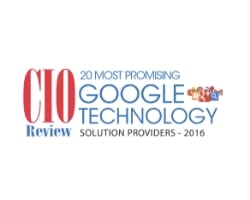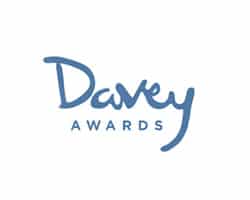Today, Artificial Intelligence (AI) has emerged as a powerhouse in marketing. From personalized recommendations to predictive data-driven analytics, AI has been transformative, offering unparalleled efficiency and insights at a pace we have never seen before.
In the world of business, for example, AI has enabled companies to automate route operations, make data-informed decisions, and use the power of predictive analytics to allocate resources more efficiently. In tech, AI has revolutionized cybersecurity with its ability to analyze behavior patterns to detect anomalies that could point towards malware and malicious behavior.
Especially with the rise in popularity of generative AI and natural language processing (NLP), such as ChatGPT, AI technology has found an increasing number of uses in marketing and content generation, which comes as no surprise. In fact, a recent McKinsey study found that generative AI could increase the productivity of marketing by 5 to 15% of total marketing spend, worth about $463 billion annually.
Yet, amid this technological revolution, AI-generated content and marketing still lack the human touch, something that even the most advanced AI technology simply cannot (and may never be able to) replicate.
The Importance Of Human Touch In Marketing
At the end of the day, marketing needs a human connection; this is something that transcends data points and algorithms. Marketing is about relating to your audience to get them to buy into your brand, whether it is in the form of empathy in understanding a customer’s needs or the authenticity of a personal interaction. These elements are the essence of the human touch, an intangible quality that AI struggles to imitate.
While AI excels at processing vast amounts of data and optimizing marketing campaigns, it lacks the emotional aspects that consumers are looking for. Especially in a world that is oversaturated with content, it’s the human touch that cuts through the noise and makes brands memorable in the minds of consumers.
Content and Market Saturation
One modern-day dilemma that we are facing worldwide is content marketing saturation. With the rise of digital platforms and the popularity of content creation as a marketing strategy, the sheer volume of content produced has led to an oversaturation that overwhelms consumers. Furthermore, quantity does not equate to quality; 95% of content fails to connect with people.
In addition to this, market saturation poses another formidable challenge. With countless competitors vying for consumers’ attention, standing out in a crowded marketplace requires more than just data-driven strategies. It requires quality content that reflects a deep understanding of human behavior and current market dynamics. This is where AI falls flat, in terms of delivering such meaningful content.
Limitations of AI
While there is no doubt that AI can generate vast quantities of content at remarkable speed, it often lacks the creativity needed to create a compelling narrative, whether it is authentic storytelling, emotional resonance, or cultural relevance.
At its crux, AI operates based on algorithms and data, recreating content from machine learning. As such, it still lacks the intuitive understanding and emotional intelligence that humans possess, such as creativity or the depth of human insight.
AI-Generated Content: Is It Augmenting Creativity or Diluting Authenticity?
The proliferation of generative AI has since led to an unprecedented rise in AI-generated content, from automated email campaigns to AI-generated articles.
While these content generation tools offer a new level of efficiency and scalability, they do raise questions about authenticity and genuineness. Can content created by algorithms truly connect with audiences on a human level? This answer, unfortunately, is no.
Amidst content and market saturation, consumers crave authenticity from the brands that they buy from. And in this regard, AI often lands short of delivering creative and authentic content that resonates with target audiences.
As marketing teams and leaders start to embrace AI as a tool in their marketing arsenal, it is important to strike a balance between automation and human intervention. While AI can enhance efficiency and optimize processes, it needs to be guided and vetted by human judgment at the end of the day.
The Issue of Plagiarism
As AI-powered tools have become more commonly used in marketing and content creation, concerns surrounding plagiarism have also become increasingly prevalent. While AI content is technically generated from scratch based on existing data and patterns, it does not completely ensure originality and integrity.
Plagiarism detection tools may help mitigate this risk, but ultimately, there needs to be a reliance on human judgment to ensure that content has been cited correctly or paraphrased.
So What is the Future of Content and Marketing?
As we look to the future of content and marketing, artificial intelligence isn’t going away. However, while AI continues to be used to evolve and augment marketers’ capabilities, the human aspect is still indispensable.
Rather than serving as a substitute for human expression and creativity, AI should be used to streamline processes, uncover insights, and serve as a catalyst for human expression. By harnessing the power of AI where it is most effective, marketers can focus their energies on aspects that truly need their attention — the brand storytelling processes, building authenticity, and nurturing genuine connections.
Ultimately, it’s the fusion of AI’s capabilities with the human touch that unlocks the full potential of marketing innovation. It is no secret that AI has revolutionized the marketing landscape, but it still has not reached the stage of being able to replicate the innate human qualities that define authentic brand building and engagement.
Want to learn more about artificial intelligence in marketing or general B2B tech marketing trends? Millenium Agency is a nationally recognized, top woman-led B2B branding and digital marketing firm that specializes in market research, brand strategy, and digital marketing. As your industry partner, we help create marketing strategies and frameworks that help make a strong impact and accelerate your brand’s growth.
Schedule a meeting to learn more.


























